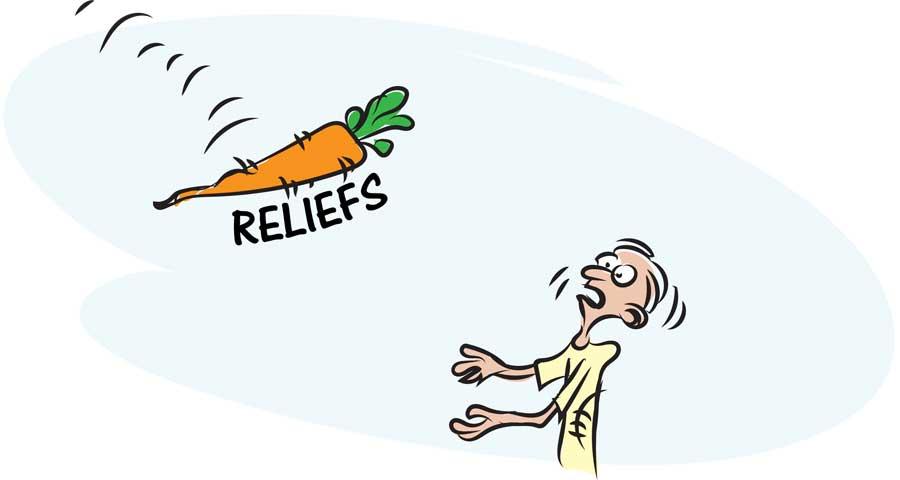Reply To:
Name - Reply Comment

According to the government’s own assessments around 55% or more casual workers lost their employment to the COVID pandemic. The economic meltdown and its consequential disasters did nothing to better the situation.
According to UNICEF acute economic crisis since early 2022 has caused severe food insecurity in Sri Lanka, and the situation is predicted to deteriorate between October 2022 and February 2023. An estimated 6.2 million people (28% of the population) are moderately acute food insecure, while 66,000 people are severely acute food insecure. Two in five households (41.8%) spend more than 75% of their earnings on purchasing food, leaving little to spend on health and education. Many families have exhausted their savings and are struggling due to
crippling inflation.
While the Central Bank and economists assure us that inflation has been controlled to a greater extent, however, the vulnerable sections of this country do not feel the reality of this economic fact. The reality is that the cost of living has far outstripped real wages which have remained static since 2021 at Rs. 12,500/- and fallen in value in real terms. The cost of providing a family of four, two basic meals today is
over Rs. 25,000/-.
The only very dim light at the end of the tunnel (if it can be termed so) for these very vulnerable sections is that, if one can beg, borrow or steal the needed funds, they are available in the market - at a price. To tackle these and similar problems from independence and even before, various governments have brought in various social welfare measures.
Many of us may today not have experience of the rice ration book - where particular quantities of rice and other foodstuff were provided by government at subsidized rates. Whether one was from the richest in the land or from the most vulnerable sectors, the subsidy was made available to the island’s population at great expense to the exchequer.
Data from the Sri Lanka Centre for Poverty Analysis (CEPA) shows from 1945 to September 1953, a measure (2 lb.) of rice was provided at a nominal rate of 25 cents! From 1973, income tax payers were not eligible for the rationed rice.
In 1977, the rice ration book ceased to exist after JR Jayewardene promised to provide 8 lbs. of cereal per month to alleviate poverty.
In 1988 President Premadasa introduced the ‘Janasaviya’ concept to help poor and vulnerable sections of the community and in 1994 Chandrika Bandaranaike Kumaratunge with a little tweaking of Premadasa’s ‘Janasaviya’ concept, ushered in the ‘Samurdhi’ scheme.
Both programmes targeted the poor and vulnerable families from the schemes. But the programmes were politicized in favour of particular political party supporters. Additionally, many families who were undeserving, but had political patronage were included in the programmes.
In the ultimate, none of the schemes aimed at helping members of deprived sections of society out of their poverty really worked. In that the numbers of poor have kept increasing.
Today, according to the United Nations Childrens Programme (UNICEF), an estimated 6.2 million people (28% of the population) are moderately acute food insecure, while 66,000 people are severely acute food insecure. What is worse, today, our country is not in a financial position to provide even basic necessities to the neediest sections of the population.
Yet even the IMF - our cure for all ills - has called for the creation of a safety net for the more vulnerable sectors of society. The Government is now proposing a new ‘Aswesuma Welfare Benefit Scheme’ which will cover over a million beneficiaries.
If the scheme which is time-bound, is to be successful, political interference needs to be eliminated. The scheme also needs to help families come out of their poverty situation and not depend on handouts or charity forever.
The success or failure of the present scheme will depend not on its ability to provide temporary relief, but on whether it helps the poor find a way to get out of their poverty.
As the old adage says “give a man a fish, and you feed him for a day. Teach a man to fish, and you feed him for a lifetime...”